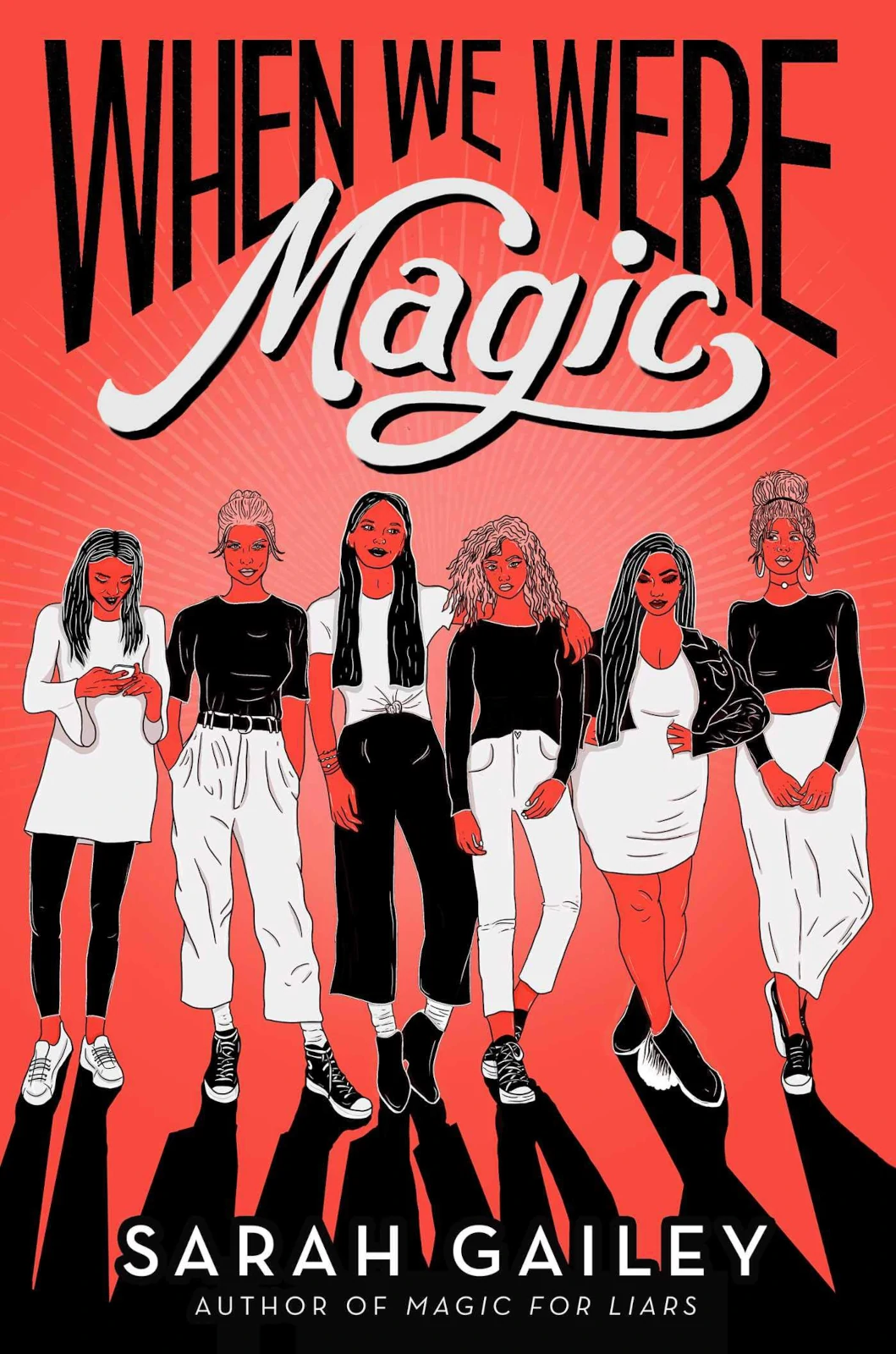
Bound by Blood: A Review of When We Were Magic by Sarah Gailey
Words By Carolyn Janecek
Published March 3, 2020 by Simon Pulse
Blood. Viscera. Exploding genitals. A prom night gone horribly wrong. From the very beginning, Sarah Gailey’s YA debut When We Were Magic had me asking: What have I gotten myself into? Gailey doesn’t pull any punches––Josh Harper is dead. Alexis killed him, but she doesn’t know how. All she knows is that she lied so she could sleep with Josh. And then, some ugly part of her magic reared up inside her and killed him dead. It’s up to Alexis and her girl gang of witches to either hide the body . . . or try to bring him back.
Being a fan of The Chilling Adventures of Sabrina, I was super excited for When We Were Magic. The first chapter promises a lot: blood magic, urban fantasy, body horror, and a kickass coven. Unfortunately, the novel grows cold as quickly as the dead boy’s body. The rest of the book is about disposing of each necromantic body part. Alex feels a responsibility to oversee each sacrifice, while holding out a vague hope that the witches’ volatile magic will bring the boy back when all the parts have been destroyed. The stakes seem high at first, but once magic easily vanishes all the bloody evidence and no one’s parents notice the duffel bags full of limbs and livers, it becomes too easy and very repetitive. Alex’s friends are confused and worried, but ultimately don’t hesitate to be accomplices. Alexis, of course, is disturbed by her magic acting out and causing injuries to others, but none of them are as literally explosiveas Josh’s death––just a nosebleed here and there.
It isn’t until nearly two hundred pages in that Gailey gives us actual consequences for Josh’s murder, although they come gloriously. As each of Alex’s friends uses their magic to destroy the body parts, each of them loses something in return. Paulie loses memories of her dead brother. Marcelina cannot forget anything. Iris can no longer see the threads of her own magic. These losses are the burdens these young witches must bear for the death of a human boy. This was the most fascinating part of the book––the most fascinating exploration of how Gailey’s magic system works. More importantly, these losses gave me so much insight into the rather large cast of supporting characters; they know that they will lose what’s closest to them, and yet they move forward anyway on the tissue-paper hope that they can bring a stranger back to life. It’s a shame that it took two-thirds of the story to see these character dynamics.
The need to resolve the murder motivated me: What is this blood magic? Will it consume Alexis and everyone she loves? Will they get caught? Will Josh stay dead? While the plot itself plodded along, these questions kept me reading at a furious pace. I had to know! Which is why I was so, so disappointed that by the end, nothing felt resolved. Once again, it felt too easy. Suddenly, Alexis knows how to control the blood magic. The ending of the book felt almost trivial compared to the circumstances that began this story. Did a boy really die because of a jealous crush she’d been holding onto? Why was the ending so convenient? I can understand that as a whole, the book was never really about a body (except it was); it was about strong female friendship. But friendship isn’t enough to pave over plot holes and inconsistent characterization.
When We Were Magic didn’t live up to my expectations. It had flaws that were difficult to ignore. I don’t regret reading the book; in fact, I still think about it––a sure sign that it made an impact. Gailey’s descriptions were lovely and I adored the supporting characters and their friendships. The aesthetic was gory, witchy, and perfect for fall. And as I’ve come to expect from Sarah Gailey, these characters are diverse and not afraid to address systemic inequality. Don your witch’s hat if you want to be entertained, but don’t expect a flawless narrative.